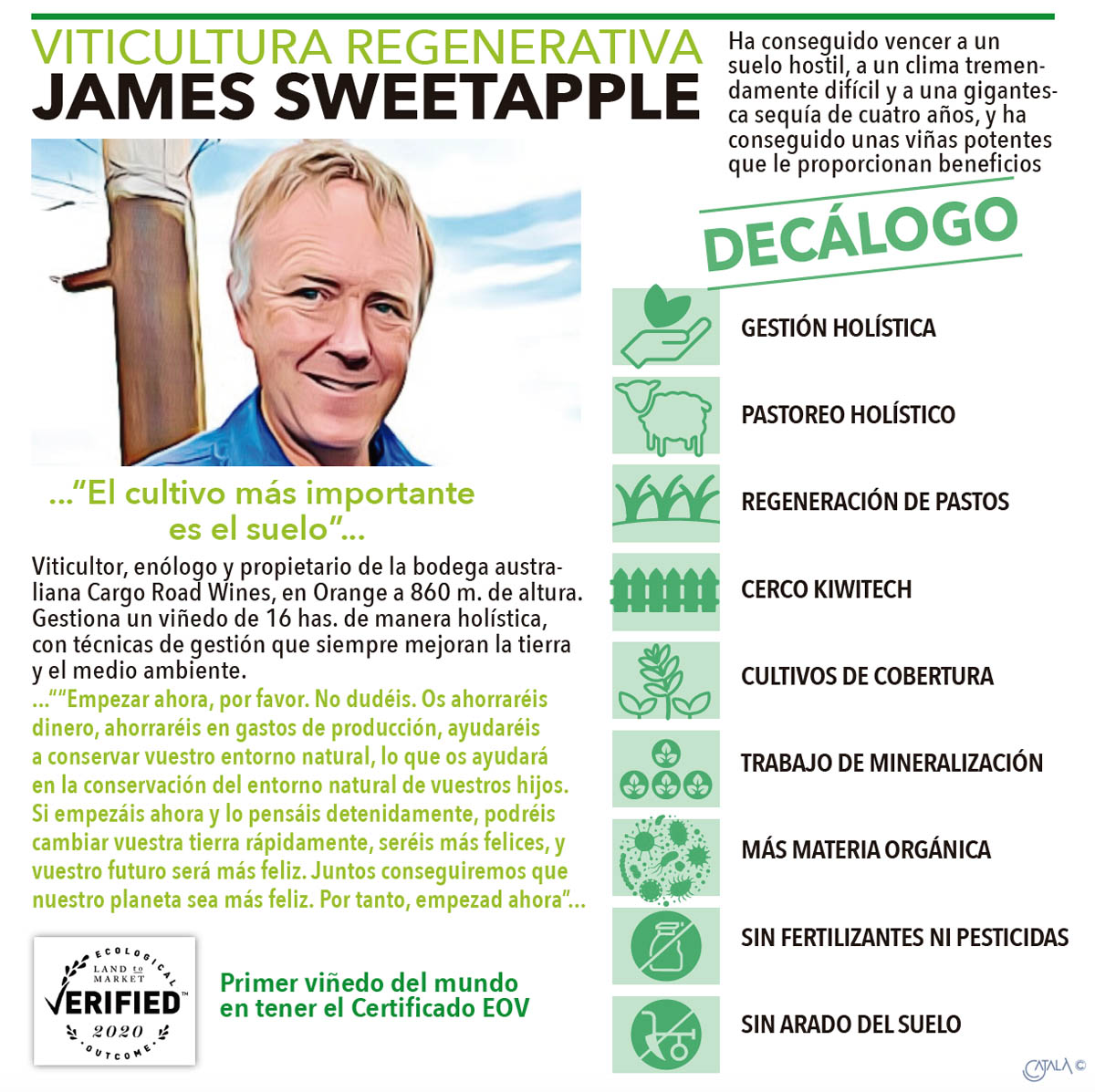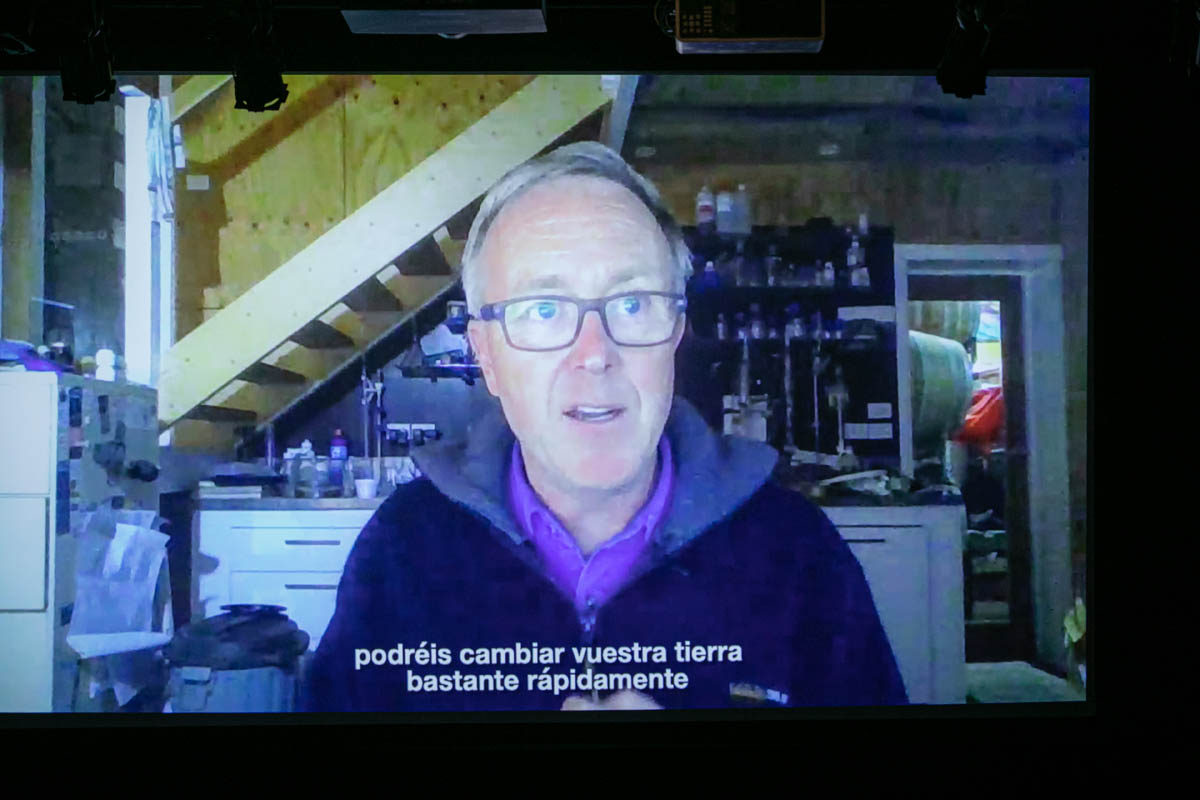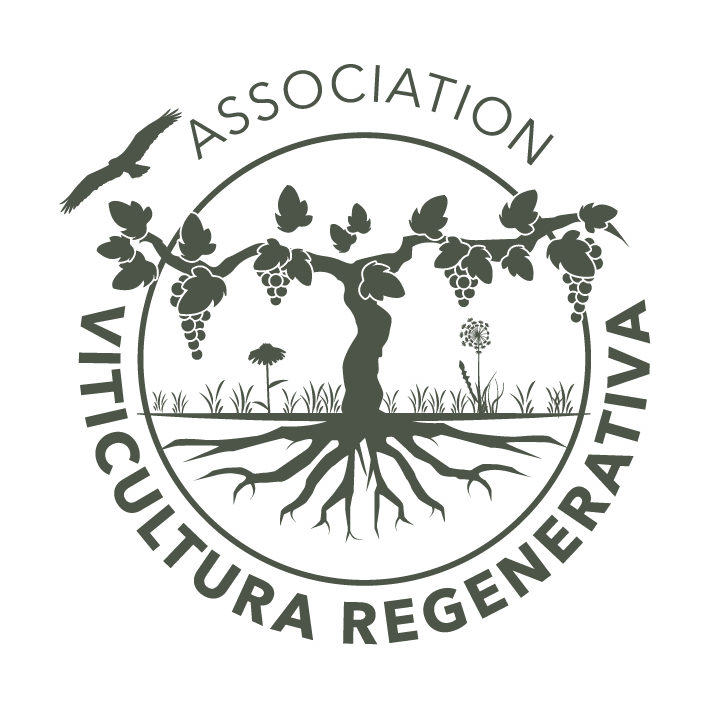James Sweetapple: By practicing regenerative viticulture “you will save money, and you will be helping to save your environment”
James Sweetapple, an Australian winegrower, winemaker, and owner of Cargo Road Wines, participated in the 1st Regenerative Viticulture Conference held in Vilafranca del Penedès this past June. Below you'll find a summary of his talk.

James Sweetapple, a regenerative farming pioneer since 2011, described in generous detail his own experience and methodology for working the vineyards and regenerating his soils. The Australian farmer quickly realized that his main nemesis was climate change, and he embraced the holistic principles of Allan Savory and regenerative agriculture, concluding that it was the best thing he's ever done and something everyone should do.
After purchasing his vineyard, Sweetapple began searching for a holistic management model to implement on his land. Sweetapple emphasizes that he wanted a genuine approach, distancing himself from greenwashed concepts of sustainability, which were widespread at the time. He rejected the practices of many of his organic colleagues who were destroying their soils. He began observing and monitoring in order to make decisions and create a holistic context under constant supervision, which earned him an EOV certification, making his vineyard the first ever to receive this distinction.
He implemented many changes, most importantly: holistic management, holistic grazing, and the regeneration of pastures thanks to a newfound understanding of the solar, mineral, and water cycles. Another crucial aspect was the introduction of Kiwitech fencing, which kept 200–300 sheep in an 800-metre enclosure for three months, resulting in better time-managed grazing which had a direct impact on the vineyard landscape.

Sweetapple went on to give a detailed explanation of the farming practices he gradually introduced over the course of 20 years: 13 species of cover crops, very successful mineralization work, an increase in organic matter (which he considers essential), more protozoa, more fungi, the generation of 130 tonnes of dry matter, and, most importantly, no chemical fertilizers or pesticides, and no tilling once the regenerative process began to show results.
For the Australian winegrower, this agricultural practice has brought about many positive effects: the ability to withstand drought (he survived four years of drought and increased his production capacity), an increase in soil organic matter and pH levels (which are now neutral), great water holding capacity (1% of organic matter retains 175,000 litres per hectare), tree regrowth, the elimination of harmful weeds, the absence of erosion, and higher and better grape production and quality, which over time are generating profits.
In short, thanks to regenerative agriculture – an approach Sweetapple adopted a decade ago – his “carrying capacity has increased 11.24%” even though the drought Australia was experiencing at the time “was the worst in 100 years”. It is a positive quadruple effect: on the community, the environment, the future, and finances.
James Sweetapple has the following message for other winegrowers: “Please start now. Please don't hesitate, please start now. You will save money. You will save on input costs. You will be helping to save your environment, which in turn is going to save our environment, which in turn is going to save your children’s environment, please start now. If you start now and do good thinking, you will be able to change your land quite quickly, and you will be happier, and our future will be happier, and together our planet will happier. So please start now.”
